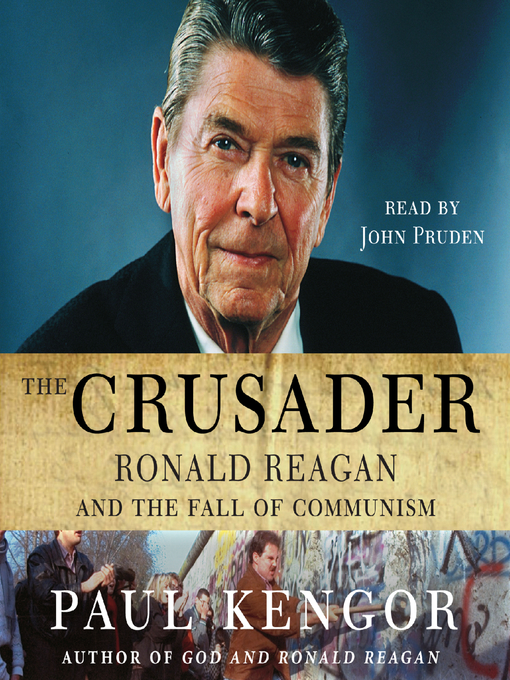The inspiration for the upcoming film Reagan starring Dennis Quaid and directed by Sean McNamara
"Combining the skills of great story-telling with his commitment to scholarly detail, Paul Kengor has written an important book that also makes for a fascinating read. The Crusader will not only entertain and inform, it will change minds." — Peter Schweizer, bestselling author of Blood Money, Red-Handed, and Reagan's War
Based on extraordinary research, The Crusader is a major reassessment of Ronald Reagan's lifelong campaign to dismantle the Soviet Empire
God and Ronald Reagan made presidential historian Paul Kengor one of the premier chroniclers of the life and career of the 40th president. With The Crusader, Kengor returns with the one book about Reagan that has not been written: The story of his lifelong crusade against communism, and of his dogged—and ultimately triumphant—effort to overthrow the Soviet Union.
Drawing upon reams of newly declassified presidential papers, as well as untapped Soviet media archives and new interviews with key players, Kengor traces Reagan's efforts to target the Soviet Union from his days as governor of California to the fall of the Berlin Wall and the collapse of what he famously dubbed the ""Evil Empire."" The result is a major revision and enhancement of what historians are only beginning to realize: That Reagan not only wished for the collapse of communism, but had a deep and specific understanding of what it would take––and effected dozens of policy shifts that brought the USSR to its heels within a decade of his presidency.
The Crusader makes use of key sources from behind the Iron Curtain, including one key memo that implicates a major American liberal politician in a scheme to enlist Soviet premier Yuri Andropov to help defeat Reagan's 1984 reelection bid. Such finds make The Crusader not just a work of extraordinary history, but a work of explosive revelation.

